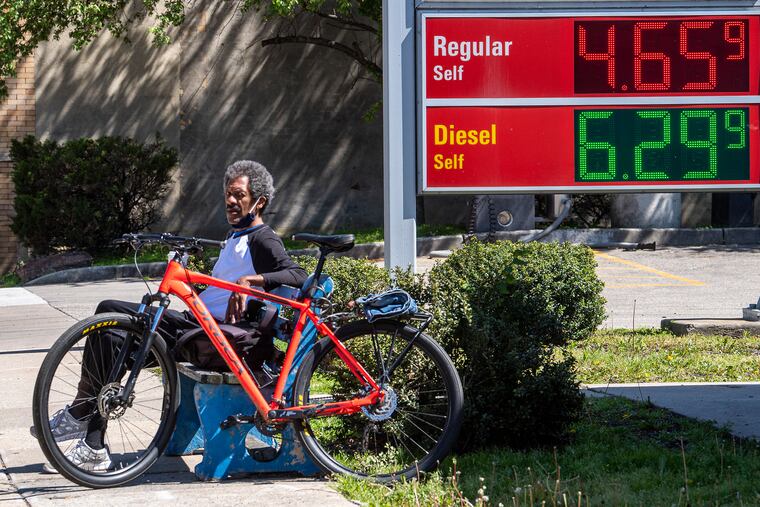Your savings from a summer gas tax holiday? About $14, a Penn Wharton model says
A longer, 10-month federal tax reprieve would save American consumers between $16 to $47 total, on average.

President Joe Biden this week urged Congress to suspend federal gasoline and diesel taxes for three months, from July to September.
At current prices, that saves each American at most $14.31 per person, according to the Penn Wharton Budget Model.
The nonpartisan think tank housed at the Wharton School of the University of Pennsylvania this week estimated that, if savings from America’s 18.4 cents-a-gallon federal tax on gas are fully passed along to consumers, drivers could save between $4.79 and $14.31 over three months.
Penn Wharton Budget Model earlier this year estimated that a longer, 10-month federal tax reprieve would save American consumers between $16 to $47 total, on average. But that prediction was published when gas prices were lower — around $3.70 per gallon, on average — so consumers could save a little more now.
Of course, savings depend on where you live.
» READ MORE: How much does gas cost in Philly right now? See The Inquirer's tracker
Pennsylvania’s gas tax leads the nation
In Pennsylvania, Friday’s average retail price totaled $4.98, and in New Jersey, $4.94 a gallon, according to AAA. The national average totaled $4.92 a gallon.
Gov. Tom Wolf earlier in the year urged Congress to pass legislation that would address rising gas prices by suspending the federal gas tax until the end of 2022.
Pennsylvania has the highest gas tax in the nation — at 57 cents per gallon.
“Like most Americans, Pennsylvanians are grappling with rising gas prices as they navigate paying for other household needs, from their rent or mortgage to groceries and other necessities,” Wolf said in a statement. “A federal gas tax holiday would ease some of that pain on Pennsylvanians’ wallets without impacting important infrastructure projects that are funded through the federal Highway Trust Fund.”
How much drivers are paying across the U.S.
Gas prices on the West Coast are generally higher. In June, for example, California posted the highest in the nation with a state average of $6.34 per gallon, while Rocky Mountain and Gulf Coast regional drivers paid lower prices than average; Georgia had the lowest price in the nation at $4.42 per gallon as of Friday.
Three states currently — Maryland, Georgia, and Connecticut — have enacted holidays, and others are weighing tax relief.
The cuts in those three states were “mostly” passed on to drivers, Penn Wharton Budget Model found: 72% of tax savings passed onto consumers in Maryland, 58% to 65% in Georgia, and 71% to 87% in Connecticut.
Two other states, New York and Florida, have passed similar legislation.
New York’s gas tax holiday from June 1 through the end of the year suspends a tax of 16 cents per gallon.
Florida is cutting its state gas tax of 25.3 cents per gallon from Oct. 1 to Oct. 31.
Michigan, Illinois, Florida, Chicago, Missouri, and California too are considering gasoline tax holidays and rebates, distributing gasoline cards, and public-transport vouchers, the Penn model noted.